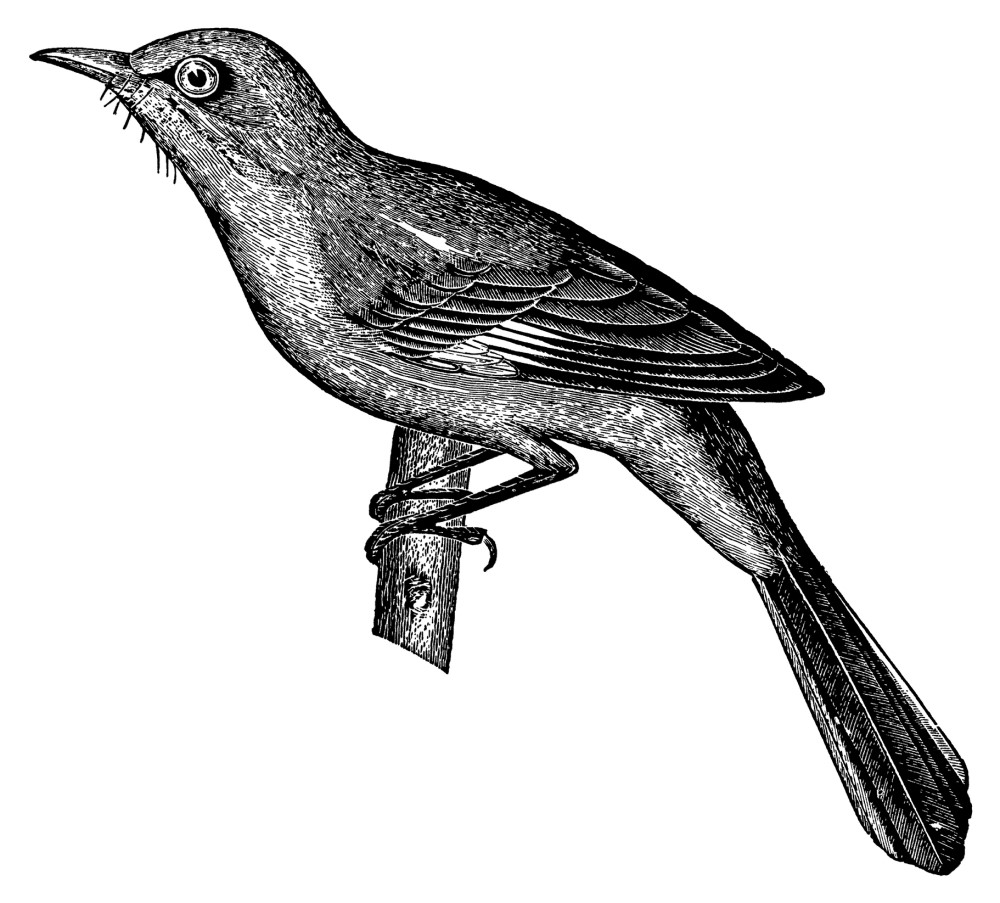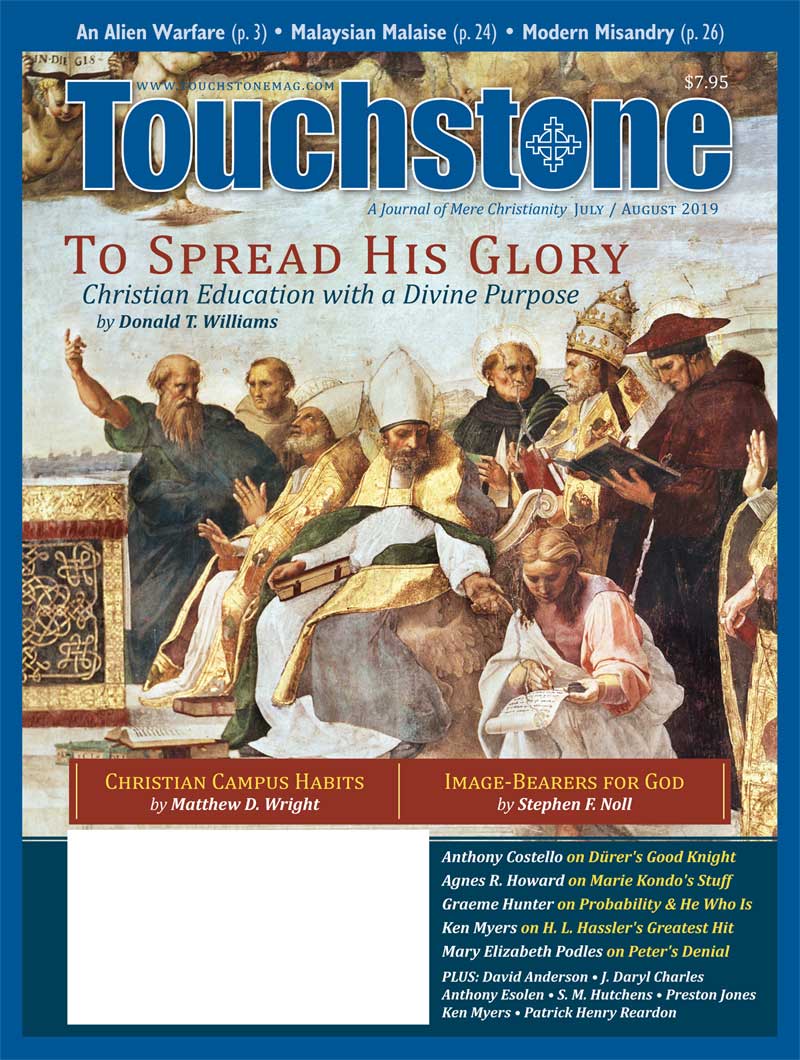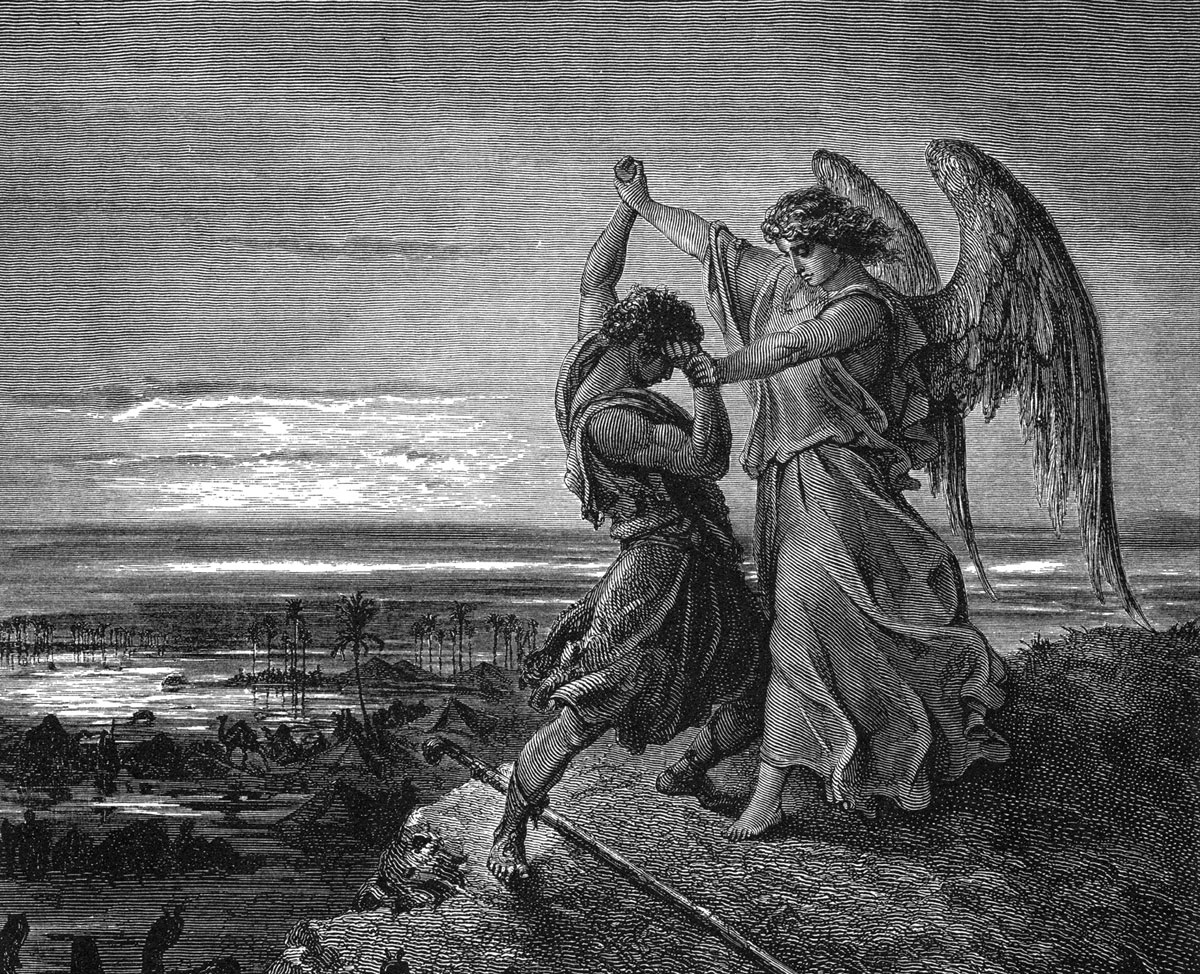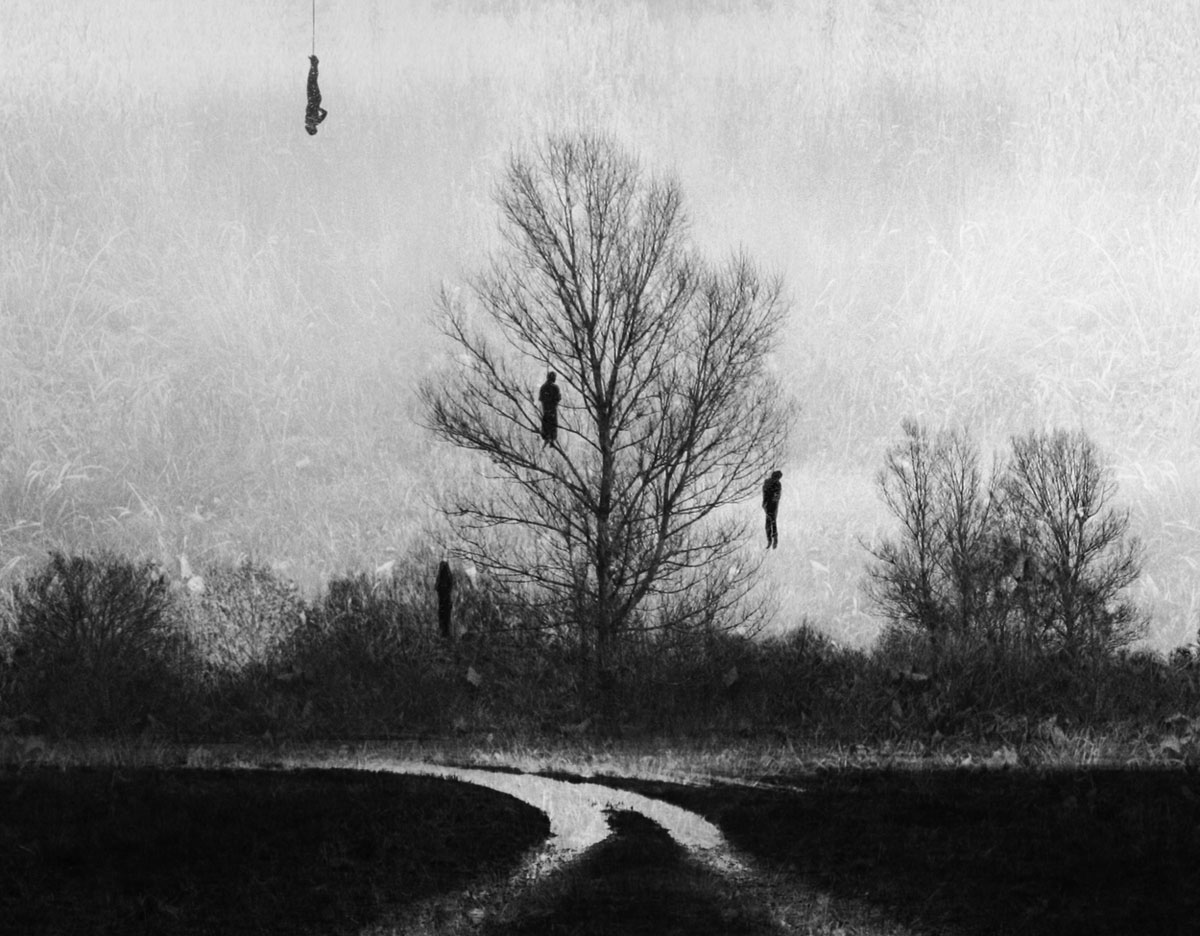Book Review
Novel Conversion
Evolution of Desire: A Life of René Girard
by Cynthia L. Haven
reviewed by David K. Anderson
Over a scholarly career of more than fifty years René Girard spun an unfashionably grand narrative. He evinced steady disregard for disciplinary boundaries, and sublime confidence that he had discovered something essential about human beings. And he was a Catholic who maintained a controversial argument about the crucial role of Christianity in history. As Cynthia L. Haven tells it in Evolution of Desire: A Life of René Girard, Girard’s is a story of transformation. Early in his career, Haven writes, “a clever up-and-coming lit critic” became “something far more profound.” Though perennially aware of the currents of thought eddying around him, Girard would be fixed on a single idea, through which he understood politics and the arts, archaic societies and the nuclear age, psychology and religion. The result was a magisterial and audacious interpretation of human nature and cultural formation that stood athwart the roiling currents of the humanities and social sciences: formidable, dense, and imbued with great interpretive power.
Words like “fixity,” “audacity,” and “power” are briefly forgotten when we read of the gentle man who died quietly in his 92nd year, at home in California. The final images we have of Girard in Haven’s new biography are poignant: a last decade of recurrent strokes, mounting frailty, domestic tranquility, and warm though wandering conversation. Even at the end, however, that singular focus endured. Girard remained obsessed with the world of ideas and with the cultural and political breakdown of the age, news of which seemed every day to reinforce his core convictions about man’s emulous heart. Undergirding it all was his faith and a gift for relationships. Those who admire Girard can only be grateful that Haven, the author of books on Joseph Brodsky and Czeslaw Milosz, came to know him in that last decade, forming a friendship that was clearly important to both of them. She was uniquely positioned to produce this insightful and moving life, founded not merely on a serious reading of his corpus and interviews with colleagues and friends, but on many hours of conversation with both René and Martha, his wife of 63 years.
A Startling Thesis
We begin in Avignon, where Girard was born in 1923. The family’s roots in the sun-dappled region went deep, and his father, Joseph, an archivist, rose to become curator of the Palais des Papes, the imposing Gothic complex that dominates the town as a constant reminder of Avignon’s late-medieval prominence. His boyhood was happy, his education successful, and so he tried, for a time, to follow in his father’s footsteps, moving to Paris at the beginning of his twenties to study medieval manuscripts at the écoles des Chartes. He quickly left archival work behind, but Haven suggests that the habits of close scrutiny it ingrained would benefit him in his later career as he probed ancient tragedies and modern novels for traces of rivalrous desire or whitewashed persecution. That his time in Paris coincided with the German occupation, Haven suggests, must also have heightened his sensitivity to humanity’s capacity for collective violence. In particular, she discusses the retribution meted out by the anguished and humiliated French towards collaborators after the liberation, a vivid example of how a community will make a single person pay for its trauma.
It would take the passage of more than a decade for those seeds to sprout. It would also take American soil. In 1947 Girard took advantage of the remarkable post-war expansion of the U.S. university system and crossed an ocean to teach French literature to midwestern undergraduates (one of them the future Mrs. Girard) while attaining a Ph.D. in history at Indiana University. America offered him opportunities that must have seemed out of reach in his battered homeland. In particular, Girard realized the quintessential American promise of reinvention. He moved past his doctoral subject of contemporary Franco-American relations and immersed himself in the European novel.
He changed his academic billet several times in the 1950s, settling for a time into the French department at Johns Hopkins, from whence his first book appeared in 1961. Translated into English a few years later as Deceit, Desire, and the Novel and covering authors from Cervantes to Proust, it made a startling and unsettling claim: the thing that we believe is most authentically our own, our desire, we actually learn from others. The great novelists, Girard argued, see through our mensonges romantique and reveal that our longings are imitative, always modelled for us by another, who becomes, when the object of desire cannot be shared, our competitor. While the idea of “mimetic desire” is hinted at by various thinkers down the centuries, for Girard it was nothing less than the first principle of human nature.
Such a thesis could have carried a midcentury humanist in many directions. The author who began the work was a man of his era, writing, he later said, with the goal of “pure demystification . . . cynical, destructive, very much in the spirit of the atheist intellectuals of the time.” He might have been content to expose the unacknowledged, emulative games that lie behind our overt longings with a wry leer—another continental thinker debunking the self-deceiving human animal. However, as he wrote, something happened. Deceit, Desire, and the Novel does not end on a note of disenchantment. We are made to understand that when the Romantic idol topples, it means the liberation of more than just the book’s protagonist. As Haven puts it, “Girard asks you to ask yourself: Whom do I worship?” Escaping the grand illusion of our metaphysical autonomy, recognizing our shared brokenness with the desirous model who is also our rival, author and reader alike are changed.
As Girard worked on the book, its truth came alive to him. He was converted. A weekly train ride between Baltimore and Bryn Mawr, where he taught a class, allowed for a recurrent, steadily deepening epiphany, making him see that what the characters in Stendhal and Dostoyevsky seek—what we seek—are not simply the possessions of another, but his very being, a metaphysical plenitude that we know is absent in ourselves. “All novelistic conclusions are conversions,” Girard writes, continuing with the unblinking conviction that would be his hallmark, “it is impossible to doubt this.” It was not, for him, a mere intellectual awakening. He baptized his children, renewed his wedding vows, and returned, for the first time as an adult, to Mass.
Three Central Claims
Girard’s work is composed of three central claims: the imitative nature of desire, the birth of archaic religion and social order from an act of collective violence, and the unique role of the Judeo-Christian tradition in exposing and condemning that violence. We can forgive anyone who read him through the 1960s and 1970s for being surprised as one phase gave birth to another: each could have formed the basis of a very different career.
The first we have already discussed. The second was the product of an anthropological turn that followed Girard’s move to the English Department at SUNY Buffalo. Emma Bovary seems long forgotten in Violence and the Sacred, first published in French in 1972. Girard invades the terrain of anthropologists and classicists, making the stunning claim that all primitive religions (and thus societies) are born from the scapegoating of a single victim, whose death ends a crisis of undifferentiated violence. Myth memorializes the victim while effacing the violence, and ritual sacrifice (whether of human victims or animal surrogates) reenacts it. In 1978 appeared Things Hidden Since the -Foundation of the World, which extended this thesis while going on to claim that the unique historical vocation of the Jews was to reject the mythic tradition, asserting that the one true God takes the side of the victim, a belief given its fullest expression in the Kingdom message and death of Jesus of Nazareth, a death willingly endured not as a new instantiation of the sacrificial order but its condemnation.
No task could be more vital for Girard’s biographer than to demonstrate the conceptual integrity that links these three phases. Girard himself consistently resisted the idea that he was building a grand system; he was merely unspooling the insight that first came to him on those train journeys. Haven has a rich understanding of how Girard’s ideas all follow from the initial discovery of mimetic desire, and why it carried him through African myth, Shakespeare, medieval anti-Semitism, evolutionary theory, and his final book, an apocalyptic reading of von Clausewitz’s On War. Given what Girard saw in the great novelists, Haven writes, and taking them seriously, he needed to go backward. The mimetic vacuum energy of our soul creates conflict, and the conflict is contagious. The only thing that can halt the war of all against all is the war of all against one. Emma pointed him to Oedipus.
A Game of Musical Chairs
However, “taking them seriously” is not what cutting-edge literary critics were doing with writers by the 1960s. For Girard, poets and novelists were not just symptomatic registers of insidious power dynamics or underlying linguistic structures. Writers became great—a term he employed without irony—as they actively struggled to grasp and articulate the nature of things.
In a fascinating chapter Haven gives a detailed reconstruction of one of the pivotal events in the modern academy. Girard was one of three organizers of “The Languages of Criticism and the Sciences of Man,” a symposium hosted by Johns Hopkins in the autumn of 1966. Meant to introduce Structuralism, then at its high tide, to the American academic mainstream, it instead signaled its decline, thanks to the young Jacques Derrida’s conference-closing address, “Structure, Sign and Play in the Discourse of the Human Sciences.” Derrida’s paper, which purported to undermine the very premises of Structuralism (and Western metaphysics along with it), heralded what came to be known as Deconstruction, and the era of high theory in literary studies. Haven understands the conference’s epochal significance even as she records the posturing and calculation of so many of the luminaries who attended: Jacques Lacan, puckishly broadcasting cryptic vacuities; Roland Barthes, provocateur (“For me, language is obscene”); Derrida’s canny gamesmanship; even Michel Foucault’s strategic non-attendance.
And Girard, alone amid all the jouissance. Haven is too wise, and too committed a student of Girard, to simply play the conference for laughs or outrage. She interprets it with a clear eye, but generously, recognizing that for all their ambition and cynicism many in that room were stretching to encompass something important. Moreover, to make Derrida Girard’s antithesis, Haven knows, is to make him his double. Deconstruction, she writes, “was a game of musical chairs that left Girard . . . standing and bewildered.” It is to his eternal credit that he did not rush to claim a seat, and yet it must have been uncomfortable in the short run to realize that academic fashion was going somewhere he could not follow.
To be sure, his participation in the symposium was no accident: already in Deceit, Desire, and the Novel we can see him employing tools comparable to those of a post-structuralist, reading the text against itself. However he did so because he believed that nothing less than truth was sedimented between the lines, hard, irreducible, and necessary.
A Biblical Distinction
In what way was René Girard a Christian writer? He was a Christian, and he wrote fearlessly of the unacknowledged debts our modern sensitivities owe to the scriptural tradition. Haven has a judicious sense of what his Catholicism cost Girard in the academic world, especially by the late 1970s when Christianity became a central focus of his work.
Allegations of partisanship, which still dog his reputation in the secular academy, ring hollow though. Things Hidden was not written to comfort the pious by telling them what they already knew. Haven mentions Girard’s attempt, at that early stage of his Christian turn, to articulate a thoroughly anti-sacrificial understanding of the Cross and demand that the Epistle to the Hebrews be excised from the scriptural canon. He gradually softened his stance. Though never a proponent of penal substitution—he believed Jesus died to save us from our own violence, not his Father’s—Girard came to recognize a biblical distinction between the persecutory sacrifice of the Other and the salvific sacrifice of the Self.
Nevertheless, Girard left theology to theologians. His project was Christian anthropology. Sin and grace, the Trinity, the sacraments, and eternal life seem all but forgotten in his pages. Bracketing off the theological tradition allowed him to proclaim the Bible’s epochal importance in a different forum and idiom and to pay his faith the high compliment that it should be the first priority of social scientists as well as antiquarians and
believers.
For Girard the Christian apocalypse is a millennia-long process that gradually makes us see the innocence of the scapegoat and the ugliness of our own violence. The power of that revelation comes at a cost, though. We can no longer naively mortar the bricks of our society with sacrificial blood, but sacrifice, and the order it made possible, gave our ancestors stability, protection, and cohesion. Looking back, Girard remarked that Things Hidden was a confident book, written in the belief that understanding would eliminate violence. A generation later he would remark, “I no longer believe that.”
Girard, in his last years, did not fear a shattering cataclysm. According to Haven he believed the apocalypse “will prove to be a long holding pen for mankind, in which problems multiply without resolution.” Our world will continue to make victims, though it will be dogged with a bad conscience. We haven’t learned our lesson well enough to become peaceful, but we have gleaned enough so as to believe no longer in the transparent justice of our persecutions.
Pointing to Agape
Haven touches only lightly on Girard’s marriage; his children are hardly mentioned; his pastimes go undescribed. But then who can imagine René Girard casting flies in a trout stream? Haven describes him rising at 3:30 a.m. to begin a workday that would last until noon (teaching and meetings reserved for the afternoon). Or of collaborators moving into his home so that they could work “every day, all day, stopping only for lunch and dinner.” In place of hobbies, he had friendships, and they were many and deep. Haven had no trouble finding colleagues from Baltimore, Buffalo, Stanford, and elsewhere eager to talk about their late friend. As the Scottish-American literary scholar Lionel Grossman tells Haven, “everybody loves René.”
That might surprise new students of the mimetic theory, who sometimes ask whether this man believes in love at all. To the casual reader, love seems as thoroughly demystified in Deceit, Desire, and the Novel as it ever was by Freud. But Girard’s work always points, however subtly, to the agape that can make whole our broken eros, suggesting that rivalrous desire might be transcended by the love that “seeketh not her own.”
Midway through the book Haven describes Girard in conversation with a group of theologians in the 1980s. One of them asks him how humanity can survive in a world where violence is ever-resurgent, but scapegoats no longer hold unifying power. She writes, “Girard’s response was all the more shocking for needing to be said at all in a room of theologians: ‘We might begin with personal sanctity.’”
David K. Anderson is a Senior Fellow of Dunham College and Associate Professor in the Department of English at the University of Oklahoma.
subscription options
Order
Print/Online Subscription

Get six issues (one year) of Touchstone PLUS full online access including pdf downloads for only $39.95. That's only $3.34 per month!
Order
Online Only
Subscription

Get a one-year full-access subscription to the Touchstone online archives for only $19.95. That's only $1.66 per month!
bulk subscriptions
Order Touchstone subscriptions in bulk and save $10 per sub! Each subscription includes 6 issues of Touchstone plus full online access to touchstonemag.com—including archives, videos, and pdf downloads of recent issues for only $29.95 each! Great for churches or study groups.
Transactions will be processed on a secure server.
more on philosophy from the online archives
more from the online archives
calling all readers
Please Donate
"There are magazines worth reading but few worth saving . . . Touchstone is just such a magazine."
—Alice von Hildebrand
"Here we do not concede one square millimeter of territory to falsehood, folly, contemporary sentimentality, or fashion. We speak the truth, and let God be our judge. . . . Touchstone is the one committedly Christian conservative journal."
—Anthony Esolen, Touchstone senior editor













